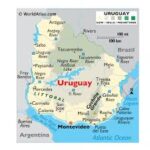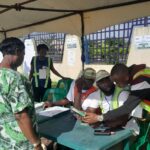Local council elections conducted in Adamawa and Katsina states this month did not depart from being non-competitive, selective instead of elective, and the charade that has characterised almost all council elections held in Nigeria in recent years.
In each of the local government elections, the ruling political parties in states won all chairmanship and councillorship seats. In Adamawa State, being governed by a Peoples Democratic Party (PDP) government, the State Independent Electoral Commission (SIEC) declared PDP ‘contestants’ as ‘winners’ of all the 21 local government chairmanship seats. Also, in Katsina State, the All Progressives Congress (APC) candidates were ‘winners’ of all the 31 declared local government chairmanship results.
A credible democratic process where politicians from competing political parties are allowed a level-playing field would have thrown up a mix of elected officials from diverse political parties.
The mockery of democracy extends to the process that leads to the emergence of candidates for local government polls even within parties. Instead of a competitive process, where aspirants sell their programmes to enable party members to evaluate their strengths against those of other contestants, a selection process devoid of internal democracy, in the name of consensus, is adopted. Governors handpick their cronies, who may not necessarily have the capacity to administer local councils, as ruling parties’ candidates. In summary, state governments select local government chairmen and councillors, who are ratified in sham elections conducted by pliant State Independent Electoral Commissions (SIECs), a kind of civilian coup against the will of Nigerians at the grassroots.
Though SIECs have ‘independent’ in their name, the electoral empires in all states are not truly independent. Being independent would require that they conduct elections free from external control and influence. But members of SIECs are morally bound to the disposition of the government in power because they are hand-picked from among members of the ruling parties in states.
This is an aberration from the practice at the federal level where the Independent National Electoral Commission (INEC) chairman and Electoral Commissioners are constitutionally required to be “non-partisan and persons of unquestionable integrity.” Most of those appointed as INEC commissioners are not proven card-carrying members of any political party. The majority of RECs are appointed from those in academia or active members of civil society organisations. Under this arrangement, INEC is seen to be largely independent. This requirement is not demanded of members of SIECs. It is not clear if this omission from Part II Section B(3) on SIECs was deliberate or an oversight, but no doubt, this constitutional loophole is being exploited by governors to the detriment of our democracy.
A faulty electoral empire cannot conduct elections that can generate a reliable and credible leadership for the kind of vision and mission the constitution envisages for local governments. For instance, Schedule 4(2) of the constitution allocates to local councils the following roles: “(a) the provision and maintenance of primary, adult and vocational education; (b) the development of agriculture and natural resources, other than the exploitation of minerals; (c) the provision and maintenance of health services; and (d) such other functions as may be conferred on a local government council by the House of Assembly of the state.”
Apart from these, Schedule 4(1) has a long list of important economic and social roles that local councils are meant to play for the effective management of every state. As they are today, local councils have been so emasculated and incapacitated by state governments to the point that they cannot effectively accomplish these roles. Funds allocated to local councils from the Federation Accounts and Allocation Commission (FAAC) are hijacked by state governments in the name of local and state governments joint account. Even now that federal allocations are paid directly into local council accounts, appointed chairmen in some instances are made to surrender those resources to state governments. This is unfair and unacceptable.
Local government elections are too important to be surrendered to SIECs. We advocate an amendment to Part II Section B(3) to include a clause similar to that of INEC, which should say the chairmen and members of SIECs must be “non-partisan and persons of unquestionable integrity.” At least, this will ensure state electoral bodies are not made up of only ruling parties’ apologists. In the alternative, we join our voice to the myriad appeals to the National Assembly and federal government to abrogate SIECs and give INEC the powers to conduct all elections in Nigeria – federal, state and local councils. The quality of local council elections is an apparent mockery of our democracy. It makes Nigerians at the grassroots develop cynicism and apathy towards council elections and those elected do not seem to have the measure of legitimacy needed for them to effectively run local councils. This is dangerous and must be halted without delay.

 Join Daily Trust WhatsApp Community For Quick Access To News and Happenings Around You.
Join Daily Trust WhatsApp Community For Quick Access To News and Happenings Around You.


